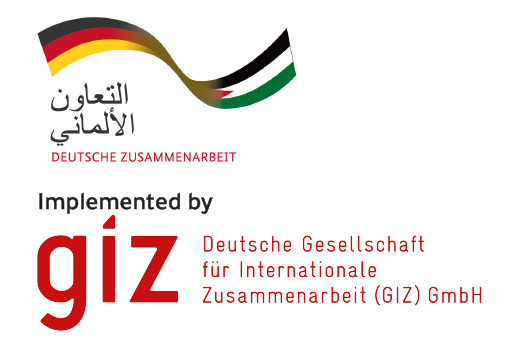

Currently 10 insurance companies operate in the Palestinian market of which two provide Takaful insurance services. With 68% of the portfolio concentrated in vehicle insurance and a penetration ratio of 1.89% in 2021, the insurance sector in Palestine has a significant potential in untapped or under tapped market segments. However due to the specific needs of low-income consumers and SMEs, low insurance literacy, mistrust and a lack of inclusive products, grow rates are currently stagnant. Moreover, distribution of insurance and therefore access to consumers remains difficult in the Palestinian market. Insurance technology can play a key role in realizing the existing potential for example through better underwriting, automatization or improving the customer experience.
The Palestine Capital Market Authority (PCMA), regulator for the non- banking financial sectors in Palestine including Insurance, Securities, Mortgage Finance, Financial Leasing and Factoring, is working on addressing these challenges through policies and a regulatory framework encouraging innovation. Accompanied by the PCMA strategy (2021 -2025) the authority aims to set the course for supporting the insurance sector to develop new products for small and medium enterprises (SMEs), such as agrobusinesses and women-led enterprises, and low-income customers. One of the initiatives of the Authority to provide an innovative environment is the ‘EBTAKER’ Platform. As a first of its kind in the Arab world ‘EBTAKER’ is a regulatory fintech innovation hub, which supports and encourages fintech and insurtech innovations for the non-banking financial sector. ’EBTAKER’ plays a key role in promoting and facilitating the communication between the PCMA and innovators as well as entrepreneurs in the non-banking financial sector.
You can learn more here http://www.ebtaker.ps/
For any inquiries or issues please reach out to us here

The Insurance market in Palestine lacks innovative solutions that meet the needs of MSMEs (e.g. agrobusinesses or women-led MSMEs) and low-income customers despite the high potential for insurance provision. Groups which suffer from insurance exclusion often use sub-optimal coping mechanisms to deal with risks. Moreover, on the demand side MSMEs and low-income customers still lack awareness and knowledge on the importance of insurance in protecting their projects or are not interested in insurance products as they feel that the available options do not meet their needs.

Enhancing the quality of insurance services is key to developing the insurance market to become more inclusive. The complexity and uncertainties regarding insurance policies and claims management contribute to a low consumer demand. Improving complaint management services can help to improve the costumer experience and therefore increase the demand on insurance policies in the medium and long term. Insurance companies currently lack tools for enhancing the consumer complaint management processes from identifying the causes to proposing a solution which will lead to an increased customer satisfaction.
Theme 1: Creating access to Inclusive Insurance and Insurance literacy
We would like to see a solution to drive market development for inclusive insurance through:
• Better data gathering and analysis to increase the operational efficiency of insurance products as well as making them more inclusive
• Decrease administrative burdens when engaging with insurance providers to increase inclusion for non-insured SMEs (e.g. agrobusinesses or women-led SMEs) and low-income costumers
• Awareness on the importance of being insured for a growing and sustainable business
Theme 2: Improving the costumer experience
We require a solution/idea to drive inclusive insurance while focusing on the below:
• Facilitate easy access of potential policyholders to all material information, their rights and obligations for the duration of the contract
• Help the customer and insurers track complaint and claim management processes
• AI & machine learning tools to increase the operational efficiency of managing customer complaints (customer’s needs, opinions and beliefs) and increase the speed of response to address the issues associated in a shorter period
Regulatory and legal considerations need to be applicable when required. Technical, Regulatory Requirements and PCMA policy in promoting fintech and dealing with innovations are described through Ebtaker website: http://www.ebtaker.ps/
5,000$ for each theme winner


Participants
34
Team size
2-5
Registration Start Date
Sep 26, 2022
Registration End Date
Nov 20, 2022
Shortlisting Date
Nov 24, 2022
Hackathon Start Date
Dec 07, 2022
Hackathon End Date
Dec 15, 2022

The Palestine Capital Market Authority was established as an autonomous agency by law no. (13) Of the year (2004).
The PCMA aims to create the appropriate environment to achieve stability and growth in the capital market and protect the rights of consumers, by regulating, developing, and supervising the activities of the non-banking financial sectors subject to the supervision of the PCMA represented in the sectors of insurance, securities, financial leasing and financial mortgage. In its five-year strategic plan (2021-2025), the PCMA seeks to promote financial technology through a set of projects that focus on providing the necessary operational and regulatory environment to encourage financial innovations, and to develop and operate the Regulatory Sandbox.